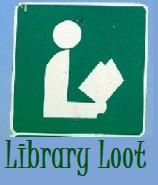I wanted to make the trek to the library yesterday, but the big storm hit and it rained and rained all day. Everyone probably had the same library withdrawal - the carpark was pretty full and I was actually No. 4 in the check-out queue for once (I've never had more than one person ahead of me before).
The Best American Essays of the Century
Sounds like a good collection!
This singular collection is nothing less than a political, spiritual, and intensely personal record of America"s tumultuous modern age, as experienced by our foremost critics, commentators, activists, and artists. Joyce Carol Oates has collected a group of works that are both intimate and important, essays that move from personal experience to larger significance without severing the connection between speaker and audience.
From Ernest Hemingway covering bullfights in Pamplona to Martin Luther King, Jr."s "Letter from Birmingham Jail," these essays fit, in the words of Joyce Carol Oates, "into a kind of mobile mosaic suggest[ing] where we've come from, and who we are, and where we are going."
Among those whose work is included are Mark Twain, John Muir,
T. S. Eliot, Richard Wright, Vladimir Nabokov, James Baldwin, Tom Wolfe, Susan Sontag, Maya Angelou, Alice Walker, Joan Didion, Cynthia Ozick, Saul Bellow, Stephen Jay Gould, Edward Hoagland, and Annie Dillard.
I kept thinking that I've read this before, but apparently not!
A Town Like Alice tells of a young woman who miraculously survived a Japanese "death march" in World War II, and of an Australian soldier, also a prisoner of war, who offered to help her--even at the cost of his life...
The Uncommon Reader: A Novella
From one of England's most celebrated writers, the author of the award-winning The History Boys, a funny and superbly observed novella about the Queen of England and the subversive power of readingDaphne du Maurier's Classics of the Macabre
When her corgis stray into a mobile library parked near Buckingham Palace, the Queen feels duty-bound to borrow a book. Discovering the joy of reading widely (from J. R. Ackerley, Jean Genet, and Ivy Compton-Burnett to the classics) and intelligently, she finds that her view of the world changes dramatically. Abetted in her newfound obsession by Norman, a young man from the royal kitchens, the Queen comes to question the prescribed order of the world and loses patience with the routines of her role as monarch. Her new passion for reading initially alarms the palace staff and soon leads to surprising and very funny consequences for the country at large.
I've only ever read one other du Maurier (Rebecca) and am looking forward to reading more.
This sumptuous volume celebrates the 80th birthday of one of the best-known and most-loved storytellers in the English language today, Daphne du Maurier.
Here are six masterpieces of the imagination, illustrated in glowing color by prize-winning artist, Michael Foreman.
Don't Look Now, a classic story of the macabre, opens the collection, followed by The Apple Tree, The Blue Lenses, The Birds, The Alibi and Not After Midnight.
These dramatic and compelling stories, together with their stunning illustrations, make a perfect gift to be treasured for a lifetime.
The Afterlife: A Memoir
In the winter of 2000, shortly after his mother's death, Donald Antrim began writing about his family. In pieces that appeared in The New Yorker and were anthologized in Best American Essays, Antrim explored his intense and complicated relationships with his mother, Louanne, an artist, teacher, and ferociously destabilizing alcoholic; his gentle grandfather, who lived in the mountains of North Carolina and who always hoped to save his daughter from herself; and his father, who married his mother twice.
The Afterlife is an elliptical, sometimes tender, sometimes blackly hilarious portrait of a family--faulty, cracked, enraging--and of a man struggling to learn the nature of his origins.
The Selected Works of T. S. Spivet
A bit hesitant about picking this up, but we'll see how it goes.
When twelve-year-old genius cartographer T.S. Spivet receives an unexpected phone call from the Smithsonian announcing he has won the prestigious Baird Award, life as normal — if you consider mapping family dinner table conversation normal — is interrupted and a wild cross-country adventure begins, taking T.S. from his family ranch just north of Divide, Montana, to the museum’s hallowed halls.
T.S. sets out alone, leaving before dawn with a plan to hop a freight train and hobo east. Once aboard, his adventures step into high gear and he meticulously maps, charts, and illustrates his exploits, documenting mythical wormholes in the Midwest, the urban phenomenon of “rims,” and the pleasures of McDonald’s, among other things. We come to see the world through T.S.’s eyes and in his thorough investigation of the outside world he also reveals himself.
As he travels away from the ranch and his family we learn how the journey also brings him closer to home. A secret family history found within his luggage tells the story of T.S.’s ancestors and their long-ago passage west, offering profound insight into the family he left behind and his role within it. As T.S. reads he discovers the sometimes shadowy boundary between fact and fiction and realizes that, for all his analytical rigor, the world around him is a mystery.
All that he has learned is tested when he arrives at the capital to claim his prize and is welcomed into science’s inner circle. For all its shine, fame seems more highly valued than ideas in this new world and friends are hard to find.
T.S.’s trip begins at the Copper Top Ranch and the last known place he stands is Washington, D.C., but his journey’s movement is far harder to track: How do you map the delicate lessons learned about family and self? How do you depict how it feels to first venture out on your own? Is there a definitive way to communicate the ebbs and tides of heartbreak, loss, loneliness, love? These are the questions that strike at the core of this very special debut.
Ex Machina: First Hundred Days
With my next installment of Fables still loitering around some other borrower's house, I had to get my graphic novel fix with something new. Sounds interesting!
Spin City and The West Wing meet Batman in this gripping and satirical superhero graphic novel by the acclaimed writer of Y - The Last Man, Brian K. Vaughan. After a close encounter with alien technology, civil engineer Mitchell Hundred finds he can interface with technology of every kind. He sets himself up as erstwhile superhero, The Machine, but after doing more harm than good, Hundred ends up as mayor of New York! Now he has to contend with controversial artwork, a recalcitrant police chief and a series of strange murders that could bring the city to its knees! The first in an all-new series from Titan, Ex Machina: The First Hundred Days is brimming with political intrigue, civic chaos and superheroic shenanigans!Have you read any of these books? What did you think of them?
See more Library Loot here.











5 comments:
Wow! Great essays, great short stories and much more. The Uncommon reader is wonderful and I've picked up T S Spivet, but I'm really not sure. It looks like the kind of book that is wonderful if it's spot on, but could so easily hit a wrong note. I'll be interested to know how you get on.
I'm definitely looking forward to The Uncommon Reader as it seems to have mostly gotten raves. But yeah, I feel the same way about Spivet. It sounds interesting and kind of quirky, which can make for a great read, and yet, there's that possibility of it ending up being too odd and overdone. So we'll see!
I've read Ex Machina series. It's good. Hope you enjoy your loot!
I love du Maurier's short stories! And An Uncommon Reader was so precious! I had to return the essay anthology I'd gotten from the library-I think I read essays (and short stories) better in one-author collections.
Linda - Thanks for leaving a comment. Ex Machina does sound like a pretty interesting graphic novel.
Eva - The du Maurier collection is the one that I'm most looking forward to reading!
Post a Comment